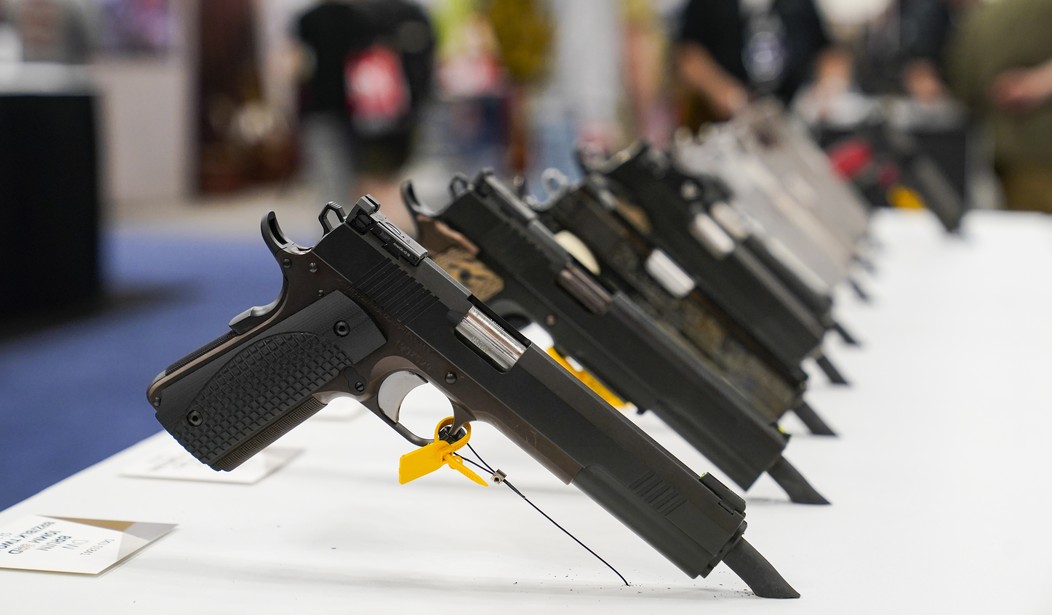A misdemeanor of domestic violence will bar people from exercising their Second Amendment in the United States. While this is in no way a pro-domestic violence stance, it is a pro-rehabilitation one. Recently a case out of Virginia involved a man who had his rights restored leaving him not fully patriated with all of them. A Virginia Lawyers Weekly article highlighted the issue at hand.
Where a man moved for restoration of his right to possess a firearm under Virginia law, after his civil rights were restored by the Virginia governor, but his domestic violence conviction prohibited him from possession of a firearm under federal law, the Supremacy Clause prohibits a state court judge from restoring the right to possess a firearm to someone who is ineligible to possess a firearm under federal law.
Background
William R. Butler was convicted of a felonious charge of eluding a law enforcement officer in 2018. He has also been convicted of misdemeanor assault and battery of a household or family member twice in 2017. His civil rights were restored by Governor Northam in 2021.
The section of law that’s being used is the Lautenberg Amendment.
“In September, 1996, as part of the Omnibus Consolidated Appropriations Act of 1997, Congress amended the criminal provisions of the GCA, adding a ninth disqualification category,” a 2001 report notes. ”Commonly referred to as the ‘Lautenberg Amendment,’ this provision makes it unlawful for ‘any person...who has been convicted of a misdemeanor crime of domestic violence’ to ship, transport, possess, or receive firearms or ammunition in or affecting commerce.”
This amendment is in 18 U.S. Code § 922 and in part is as follows:
(d )It shall be unlawful for any person to sell or otherwise dispose of any firearm or ammunition to any person knowing or having reasonable cause to believe that such person, including as a juvenile—
…
(9) has been convicted in any court of a misdemeanor crime of domestic violence;
One of the many problems with the law is that there’s no path to remedy. There is a federal law on the books that allows for people to have their Second Amendment rights returned to them should that have federal disqualifiers. However, Congress voted to defund the program in 1992, and it has remained defunded since. Further, the defunding predates the 1996/1997 Lautenberg Amendment, so would there still be a vehicle forward for Butler and those similarly situated?
In their analysis, Virginia Lawyers Weekly made several observations. “The court can enter an order finding that the applicant qualifies to have his firearms rights restored but that federal law prohibits his exercising those rights because of the Supremacy Clause,” was one way the court considered addressing the issue they said. “The court is concerned about the scenario where it would issue an order restoring the petitioner’s right to possess a firearm because the applicant qualifies under Virginia law but not federal law. The petitioner could be in immediate violation of federal law the moment he possessed a firearm.”
According to the report, In re Butler, Case No. CL24-1482, Culpeper County Circuit Court, had its petition denied. It’s not known if Butler is going to move to appeal to a higher court or file a case in federal court. The issue is ripe though.
The troubling thing is that Butler had his record wiped clean by a governor. After going through that process, by all rights, he should be fully patriated with all of his rights. If we live in a society where people can be rehabilitated, there must be a path forward for those who have.
Having the relief from the federal firearm disability program refunded would be a good starting point to sort out our justice system. Again, this is not a defense for allowing domestic violence, or any violence for that matter to proliferate, but there are big issues here.
Take into consideration any argument about the repatriation of rights to those who have the status of felon. Once someone has paid their debt to society, should they have any further punishments inflicted upon them? Should they have all of their rights returned, or perhaps an incremental path where one can have a clear direction on how and when they can get relief from any disqualifications?
Concerning firearms, United States v. Rahimi does give us a guidepost. One of the important things from that opinion is the concept of dangerousness. That does make sense, keeping weapons from someone who is dangerous. And then what of an individual when they no longer exhibit any dangerousness? There should be relief offered.
This case is a very interesting one and worth following. Regardless of what happens, there’s a lot of work that should be done to clean up our justice system. Hopefully, Butler will eventually find relief. Perhaps post-January 20th maybe we’ll see some movement to not only refund the federal relief program, but also other meaningful changes to help make and keep people whole.








Join the conversation as a VIP Member